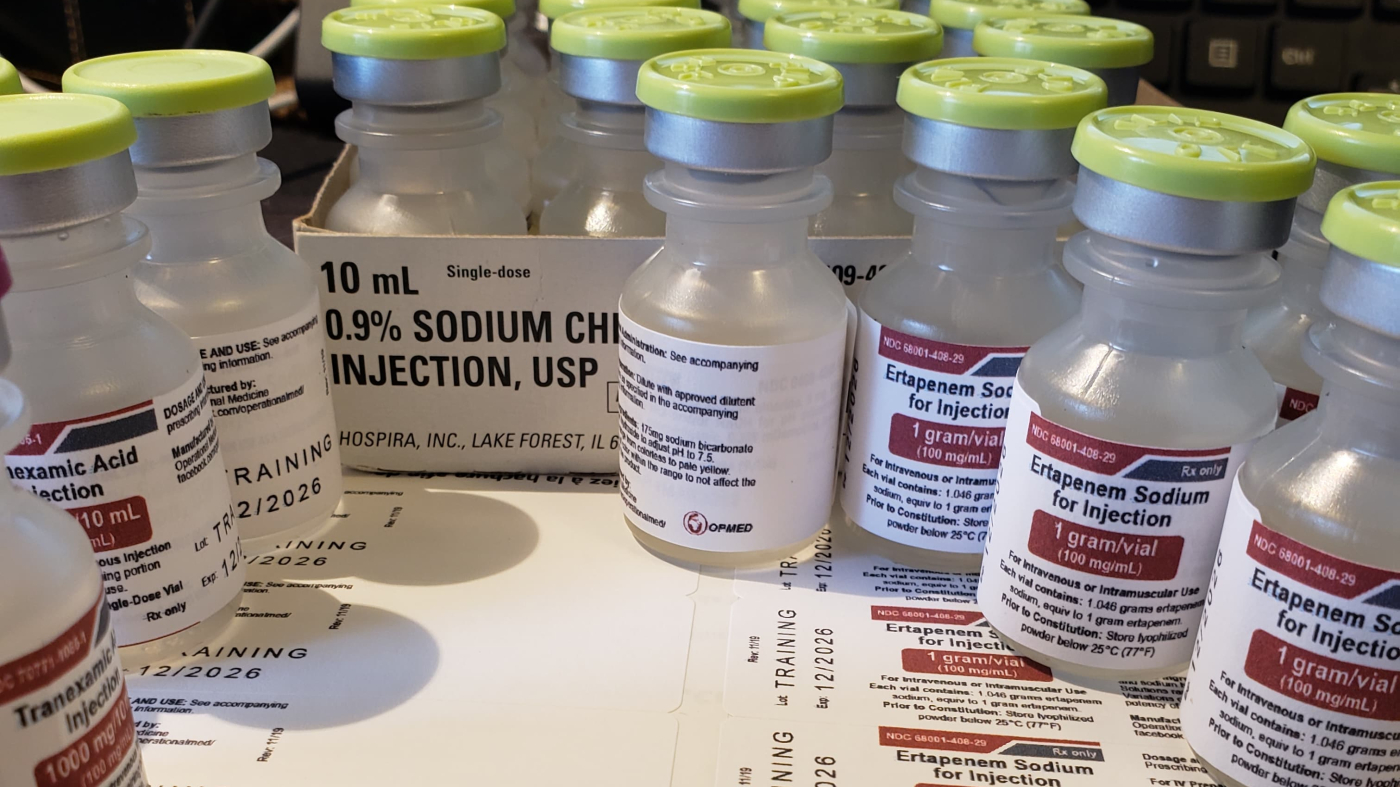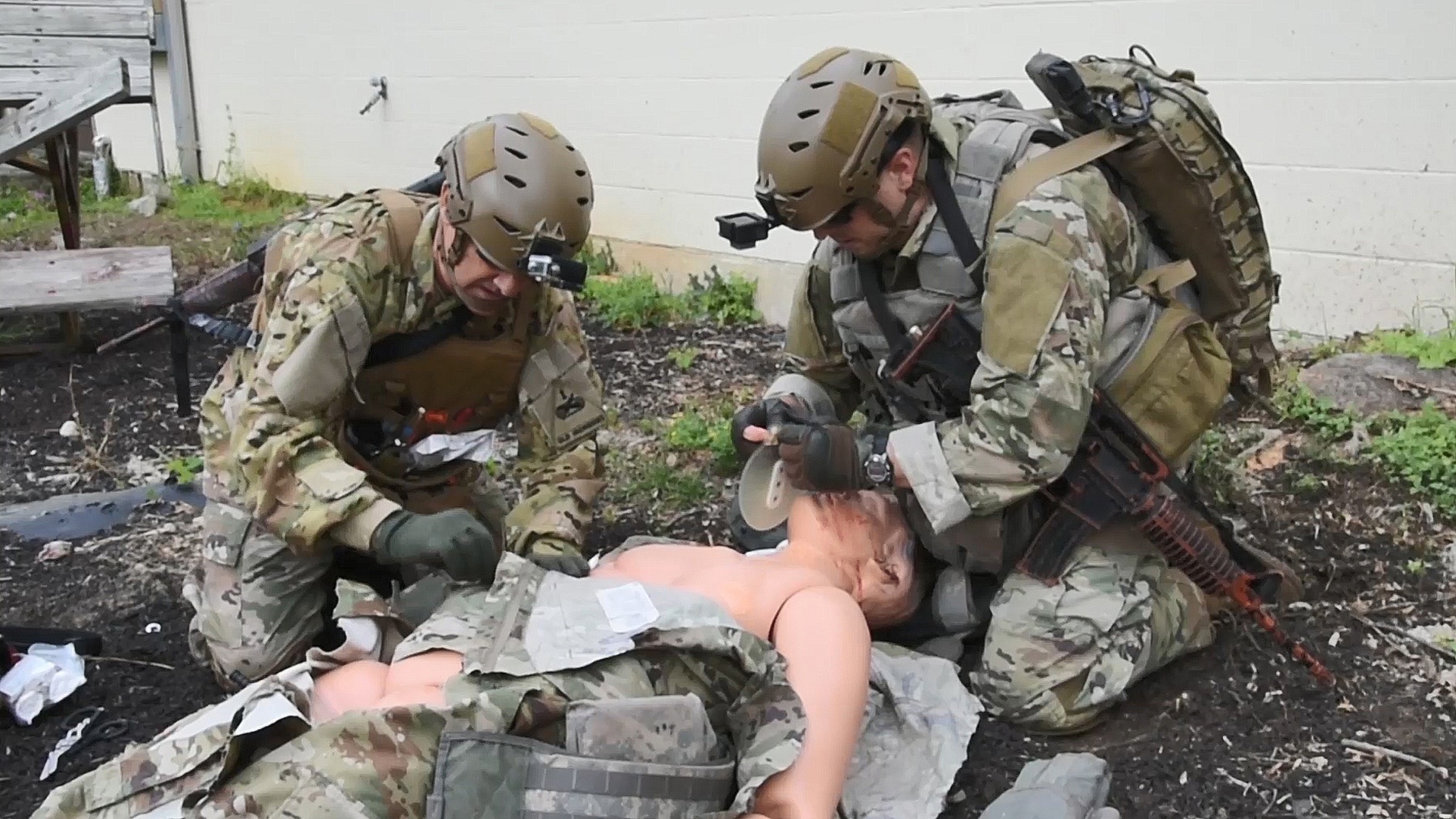These competencies and associated knowledge, skills, and attitudes (KSAs) are designed for EMS instructors who are transitioning into Educational Training Agency (ETA) program director roles. While these individuals bring valuable classroom teaching experience, they may be new to the comprehensive responsibilities of EMS curriculum development and education program administration. The KSAs outlined in this post support new directors in effectively designing, implementing, and managing EMS training programs that meet national standards, state regulatory requirements, and local educational goals.
Based on current literature and input from practicing ETA directors, these competencies emphasize the critical areas that correlate with improved student outcomes: mastery of educational theory and assessment methods, leadership and communication skills, commitment to continuous quality improvement, and the ability to integrate diverse learning experiences across didactic, laboratory, clinical, and field settings. By developing proficiency in these KSAs, new ETA directors will be equipped to create comprehensive training programs that produce competent, well-prepared EMS practitioners who successfully pass certification examinations and meet the needs of their communities.
1. Curriculum Development and Management
Task 1-1: Develop a comprehensive curriculum, given national EMS education standards, state regulatory requirements, and institutional resources, so that the curriculum aligns with accreditation standards and produces measurable learning outcomes.
(A) Requisite Knowledge: National EMS Education Standards, accreditation requirements, state regulatory framework, curriculum design theory, measurable outcomes definition, learning objective development, adult learning principles, program structure and sequencing, resource requirements planning.
(B) Requisite Skills: Standards analysis and interpretation, gap analysis, curriculum mapping and documentation, writing learning objectives, stakeholder consultation, curriculum alignment verification, resource needs assessment, documentation and communication.
(C) Requisite Attitudes: Commitment to standards-based excellence, student-centered curriculum focus, systematic and detail-oriented approach, collaborative and inclusive mindset, evidence-based decision making, adaptability and flexibility.
Task 1-2: Design integrated learning experiences, given curricular materials, local protocols, and stakeholder input, so that student learning experiences combine didactic, laboratory, clinical, and field components, allowing students to demonstrate competence in both patient care and non-patient care duties.
(A) Requisite Knowledge: Instructional methods and strategies, clinical education components, field experience requirements, psychomotor skills instruction, integration of patient care and non-patient care competencies, learning environment design, experiential learning theory, scaffolding and progressive complexity.
(B) Requisite Skills: Instructional design across modalities, scenario and case Development, clinical site development and management, field experience coordination, integration and sequencing, assessment design across settings, preceptor and faculty development, stakeholder communication.
(C) Requisite Attitudes: Commitment to integrated learning, patient-centered and community-oriented perspective, holistic competency development, quality and safety focus, collaborative partnership approach, reflective practice orientation.
Task 1-3: Integrate educational technology and simulation tools, given program goals and available technology resources, so that student engagement is increased and learning outcomes are improved.
(A) Requisite Knowledge: Educational technology integration models, learning management systems (LMS), technology infrastructure requirements, accessibility and universal design, data privacy and security, digital learning resources, simulation-based education principles, simulation technology types.
(B) Requisite Skills: Technology evaluation and selection, faculty technology training, LMS management and course design, digital content creation, accessibility implementation, student technology orientation, simulation scenario design and execution, data analysis and learning analytics.
(C) Requisite Attitudes: Innovation and continuous improvement, student-centered technology use, evidence-based technology integration, equity and access orientation, realistic technology perspective, collaborative technology adoption.
Task 1-4: Develop remediation pathways, given student performance data and learning objectives, so that additional support is provided for struggling students while maintaining program standards.
(A) Requisite Knowledge: Learning difficulties and challenges, formative assessment for learning, differentiated instruction principles, remediation strategies by learning domain, academic support resources, standards and due process, student success and retention theory, intervention timing and intensity.
(B) Requisite Skills: Early identification of struggling students, individualized remediation planning, remediation resource development, coaching and mentoring, progress monitoring and documentation, collaboration with support services, standards maintenance, and communication with stakeholders.
(C) Requisite Attitudes: Prioritizing student success, balancing compassion and standards, growth mindset, commitment to early intervention, commitment to individualized support, collaborative approach to student support, documentation and accountability, reflective practice on remediation effectiveness.
2. Assessment and Evaluation
Task 2-1: Develop and implement comprehensive assessment methods, given program objectives and national testing information, so that student progress is accurately measured and a National Registry first attempt pass rate of 75% or higher is achieved.
(A) Requisite Knowledge: Assessment fundamentals, NREMT testing structure, test item construction, cognitive assessment methods, psychomotor assessment methods, affective domain assessment, psychometric analysis, assessment planning and blueprinting, high-stakes testing principles, predictive assessment strategies, technology-enhanced assessment.
(B) Requisite Skills: Test blueprint development, quality item writing, psychomotor skills assessment design, assessment administration, psychometric analysis and interpretation, formative assessment implementation, predictive testing and readiness assessment, assessment data analysis and reporting, technology integration in assessment, assessment security management, remediation planning based on assessment, stakeholder communication about assessment.
(C) Requisite Attitudes: Commitment to valid and reliable assessment, student success and preparation focus, continuous assessment improvement, fairness and equity in assessment, standards-based assessment philosophy, transparency and communication, security and integrity vigilance, data-driven decision making, formative assessment for learning, balanced assessment approach, professional responsibility, alignment with external standards.
Task 2-2: Conduct systematic program evaluation and continuous improvement processes, given student performance data and program metrics, so that identified gaps are addressed and program effectiveness is enhanced.
(A) Requisite Knowledge: Program evaluation models and frameworks, key performance indicators for EMS education, data collection methods, data analysis techniques, benchmarking and comparative analysis, stakeholder feedback systems, root cause analysis, continuous improvement principles, action planning and implementation, accreditation and regulatory compliance, program review cycles, and ethical considerations in program evaluation.
(B) Requisite Skills: Data collection system design and management, survey and instrument development, quantitative data analysis, qualitative data analysis, data visualization and reporting, root cause analysis and problem solving, benchmarking and comparative analysis, action planning and goal setting, facilitation of improvement processes, implementation monitoring, impact evaluation, accreditation reporting and documentation, stakeholder engagement, and technology utilization for evaluation.
(C) Requisite Attitudes: Commitment to continuous improvement, evidence-based decision making, transparency and honesty, systems thinking perspective, stakeholder-centered approach, accountability and responsibility, learning orientation, long-term perspective, quality focus, equity and inclusion consciousness, proactive problem-solving, realistic optimism, professional humility, systematic and organized approach.
Task 2-3: Design and implement performance-based assessments, given psychomotor skill requirements and clinical competencies, so that student proficiency in critical skills is verified through standardized evaluation tools.
(A) Requisite Knowledge: Performance assessment fundamentals, psychomotor skill acquisition theory, clinical competency frameworks, assessment tool design, rater training and calibration, simulation-based assessment, clinical and field performance assessment, formative performance assessment, summative performance assessment, affective domain assessment in performance, technology-enhanced performance assessment, accommodations in performance assessment, performance assessment validity evidence.
(B) Requisite Skills: Task analysis and competency identification, performance checklist development, rubric and rating scale design, simulation scenario design, rater training and calibration, standardized assessment administration, performance observation and rating, performance feedback delivery, video-based performance review, inter-rater reliability assessment, clinical performance monitoring, remediation planning for skill deficits, accommodation implementation, technology integration in assessment, performance assessment quality assurance, assessment security management, documentation and record-keeping.
(C) Requisite Attitudes: Commitment to competency-based assessment, standardization and consistency focus, objectivity and fairness, student development orientation, high standards and public safety, constructive feedback philosophy, continuous improvement of assessment, transparency and clear expectations, authentic assessment philosophy, respect for student dignity, collaborative assessment approach, technology as enhancement tool, professionalism in assessment, equity and accommodation commitment, systematic documentation orientation, assessment integrity vigilance, reflective practice on assessment effectiveness.
3. Program Administration and Leadership
Task 3-1: Maintain program compliance and documentation, given accreditation standards, regulatory requirements, and institutional policies, so that accreditation status is maintained and regulatory violations are prevented.
(A) Requisite Knowledge: Accreditation system structure, accreditation standards, accreditation requirements and policies, state EMS office regulations, national registry requirements, institutional policies and procedures, curriculum documentation requirements, student records management, personnel documentation, resource and facility documentation, outcome assessment and reporting, legal and ethical compliance, audit and site visit preparation, change management and notification, record retention and security.
(B) Requisite Skills: Standards interpretation and application, documentation system design and management, record-keeping and data management, report writing and submission, compliance monitoring and auditing, change management and notification, site visit coordination and preparation, policy development and implementation, multi-agency coordination, timeline and deadline management, evidence collection and organization, technology utilization for compliance, training and communication, problem investigation and resolution, outcome data analysis and reporting, continuous improvement integration, crisis management and remediation.
(C) Requisite Attitudes: Commitment to compliance excellence, proactive and prevention-oriented, detail-oriented and thorough, systematic and organized approach, transparency and honesty, accountability and responsibility, continuous learning orientation, respect for regulatory authority, student protection focus, institutional citizenship, quality improvement mindset, risk management awareness, collaboration and communication, long-term perspective, ethical practice foundation, balanced perspective, resilience under pressure.
Task 3-2: Coordinate educational operations and resource allocation, given program resources, staffing requirements, and budget constraints, so that program efficiency is optimized while maintaining educational quality.
(A) Requisite Knowledge:
(B) Requisite Skills:
(C) Requisite Attitudes:
Task 3-3: Demonstrate leadership and communication skills, given diverse stakeholder groups including students, faculty, clinical partners, and employers, so that collaborative relationships and program support are maintained.
(A) Requisite Knowledge:
(B) Requisite Skills:
(C) Requisite Attitudes:
Task 3-4: Manage student admission and enrollment processes, given institutional capacity and program standards, so that appropriate class sizes are maintained while upholding entry requirements.
(A) Requisite Knowledge:
(B) Requisite Skills:
(C) Requisite Attitudes:
Task 3-5: Oversee student support services, given diverse student needs and institutional resources, so that student success and retention are promoted.
(A) Requisite Knowledge:
(B) Requisite Skills:
(C) Requisite Attitudes:
Task 3-6: Manage program marketing and recruitment, given target demographics and competitive landscape, so that qualified candidates are attracted and program enrollment is maintained.
(A) Requisite Knowledge:
(B) Requisite Skills:
(C) Requisite Attitudes:
4. Quality Assurance and Continuous Improvement
Task 4-1: Implement continuous quality improvement processes, given program performance data, graduate employment outcomes, and employer feedback, so that program effectiveness is enhanced and graduate preparedness meets industry standards.
(A) Requisite Knowledge:
(B) Requisite Skills:
(C) Requisite Attitudes:
Task 4-2: Establish and maintain high academic standards, given entry requirements, admission criteria, and program capacity, so that student success rates are maintained and program reputation is upheld.
(A) Requisite Knowledge:
(B) Requisite Skills:
(C) Requisite Attitudes:
Task 4-3: Modify program components and instructional strategies, given feedback from students, graduates, employers, and clinical partners, so that deficiencies are identified and program outcomes are improved.
(A) Requisite Knowledge:
(B) Requisite Skills:
(C) Requisite Attitudes:
Task 4-4: Conduct regular program reviews, given accreditation cycles and institutional requirements, so that all aspects of program performance are systematically evaluated.
(A) Requisite Knowledge:
(B) Requisite Skills:
(C) Requisite Attitudes:
Task 4-5: Monitor industry trends and regulatory changes, given evolving EMS practice and educational standards, so that programs are kept current and compliant.
(A) Requisite Knowledge:
(B) Requisite Skills:
(C) Requisite Attitudes:
Task 4-6: Benchmark program performance, given peer institutions and industry standards, so that areas for improvement are identified and best practices are adopted as indicated and appropriate.
(A) Requisite Knowledge:
(B) Requisite Skills:
(C) Requisite Attitudes:
5. Faculty Development and Support
Task 5-1: Coordinate faculty training and support, given faculty qualifications, professional development needs, and educational best practices, so that instructional quality is maintained and faculty engagement and satisfaction are supported.
- (A) Requisite Knowledge:
- (B) Requisite Skills:
- (C) Requisite Attitudes:
Task 5-2: Guide faculty in implementing evidence-based teaching strategies, given curriculum requirements, student learning needs, and available instructional methods, so that student engagement is increased and learning outcomes are improved.
- (A) Requisite Knowledge:
- (B) Requisite Skills:
- (C) Requisite Attitudes:
Task 5-3: Recruit and hire qualified faculty, given program needs and institutional standards, so that appropriate instructor-to-student ratios are maintained and instructor expertise is verified.
- (A) Requisite Knowledge:
- (B) Requisite Skills:
- (C) Requisite Attitudes:
Task 5-4: Evaluate faculty performance, given institutional policies and educational effectiveness criteria, so that professional growth is supported and instructional quality is maintained.
- (A) Requisite Knowledge:
- (B) Requisite Skills:
- (C) Requisite Attitudes:
Task 5-5: Facilitate faculty collaboration and communication, given program goals and team dynamics, so that cohesive curriculum delivery is promoted.
- (A) Requisite Knowledge:
- (B) Requisite Skills:
- (C) Requisite Attitudes:
6. System Integration and Partnerships
Task 6-1: Develop and maintain clinical partnerships, given local EMS system needs, healthcare facility requirements, and regulatory mandates, so that students are provided with real-world clinical and emergency response exposure.
- (A) Requisite Knowledge:
- (B) Requisite Skills:
- (C) Requisite Attitudes:
Task 6-2: Align program outcomes with local EMS system needs, given program goals, community needs, and healthcare system integration requirements, so that graduates are prepared for local practice environments, program content reflects current medical practice, and employment opportunities and job placement are promoted.
- (A) Requisite Knowledge:
- (B) Requisite Skills:
- (C) Requisite Attitudes:
Task 6-3: Engage with professional organizations, given industry standards and networking opportunities, so that the program’s visibility and professional connections are maintained.
- (A) Requisite Knowledge:
- (B) Requisite Skills:
- (C) Requisite Attitudes:
Additional Reading
L. Brown, N. Fowler (1999). An evaluation of EMS educational programs in North Carolina. North Carolina Community College System Emergency Medical Science Curriculum Improvement Project Advisory and Steering Committees. Prehospital Emergency Care
G. Margolis, Gabriel A. Romero, Antonio R. Fernández, J. Studnek (2009). Strategies of High-Performing Paramedic Educational Programs. Prehospital Emergency Care
J. Ruple, G. H. Frazer, William A. Bake (2006). Commonalities of the EMS Education Workforce (2004) in the United States. Prehospital Emergency Care
J. Ruple, G. H. Frazer, Arthur B. Hsieh, William A. Bake, Joann Freel (2005). The State of EMS Education Research Project:. EMS magazine
L. Atack, J. Maher (2010). Emergency Medical and Health Providers’ Perceptions of Key Issues in Prehospital Patient Safety. Prehospital Emergency Care


